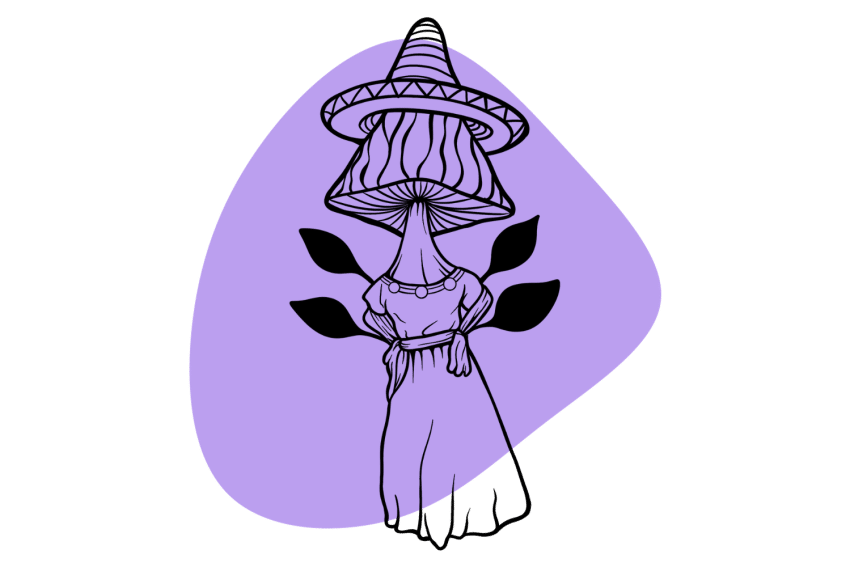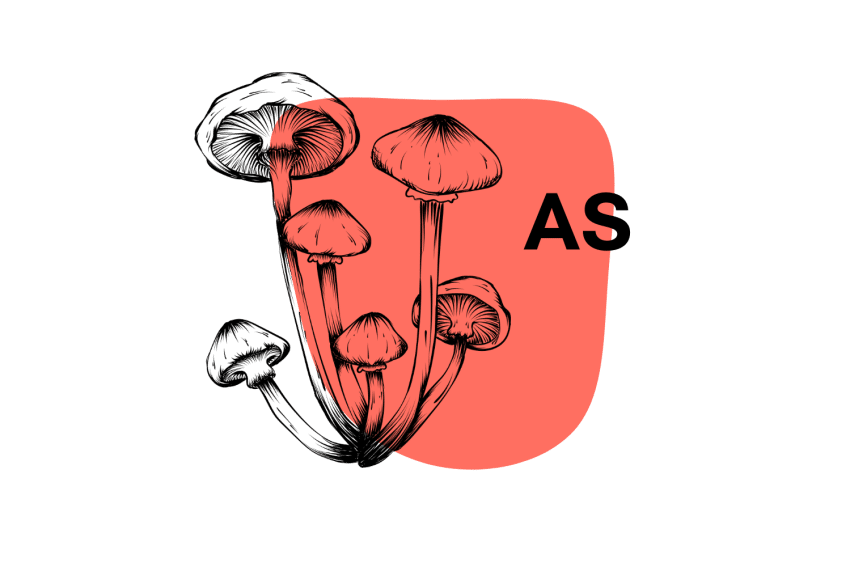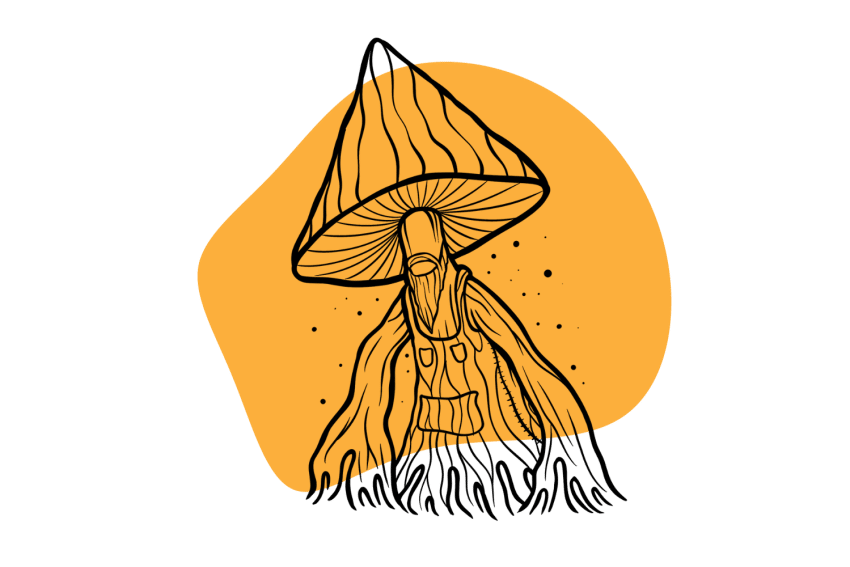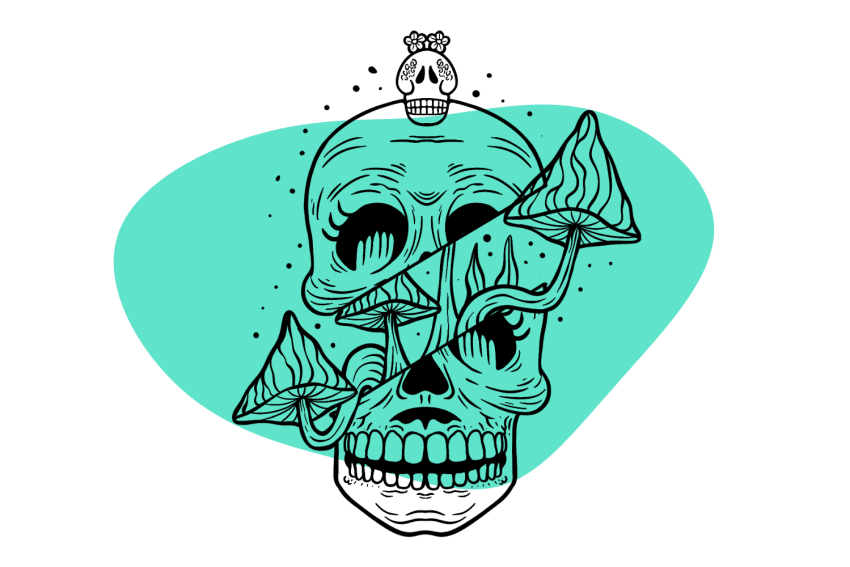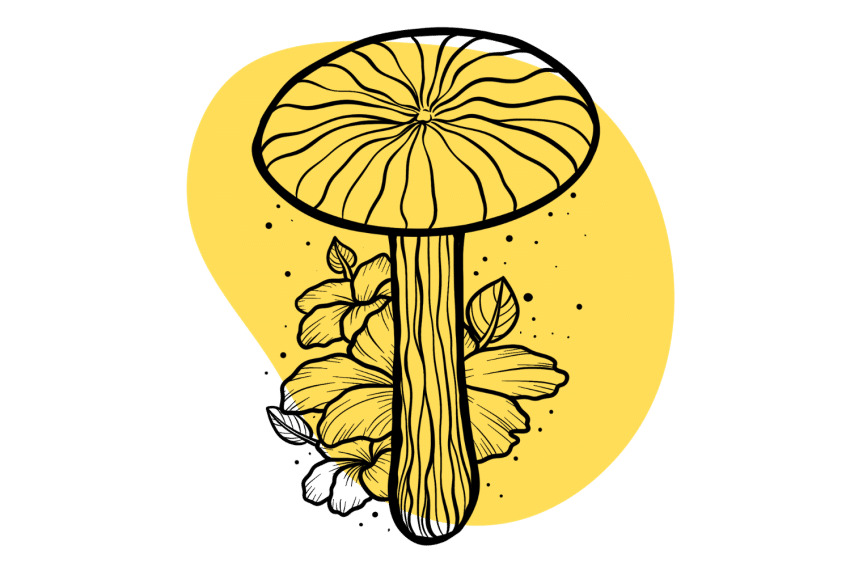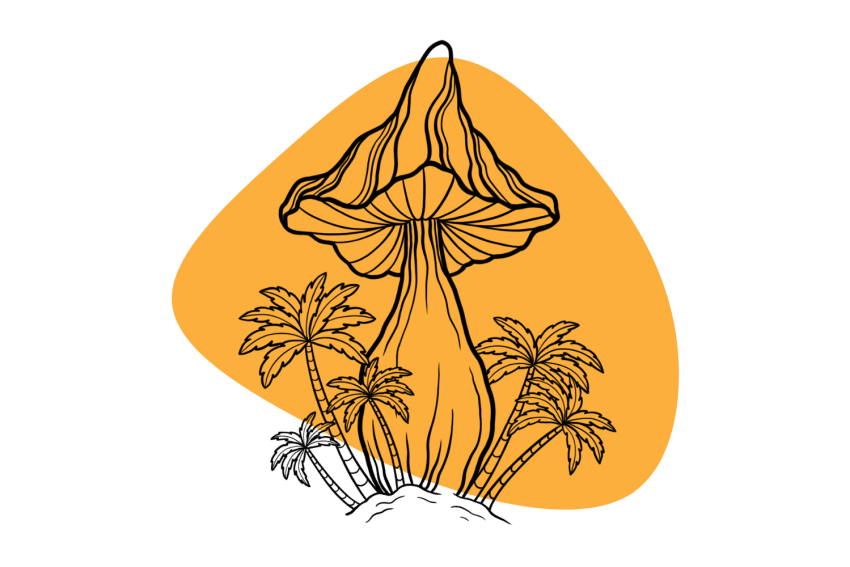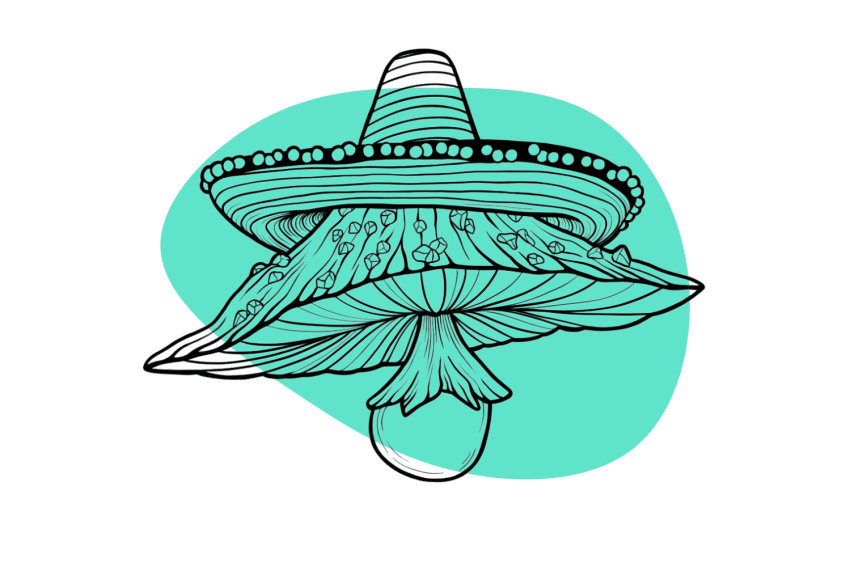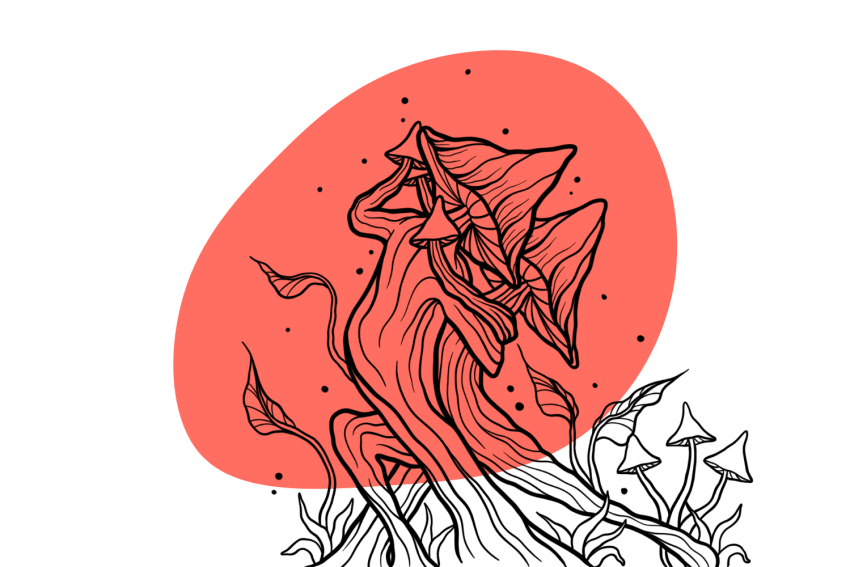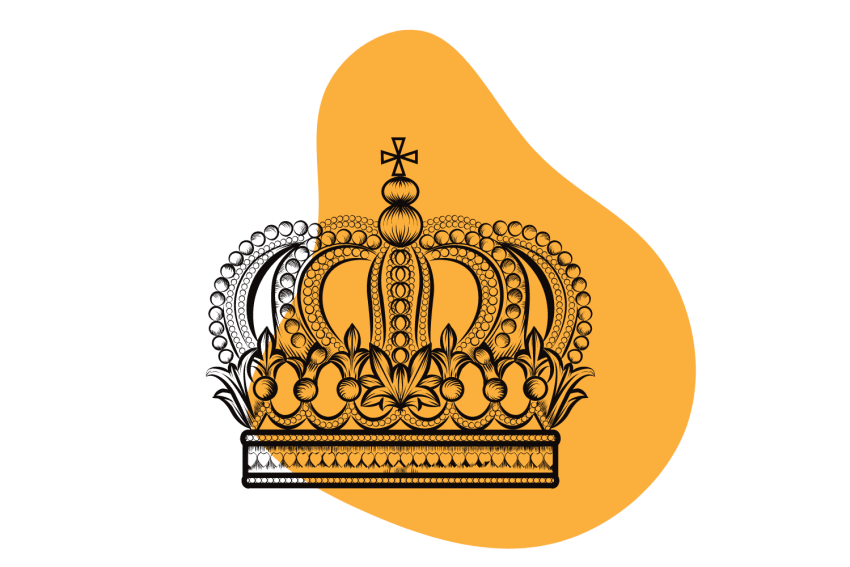The Colombian Strain: An Under-Rated Tropical Strain
We’re not sure why this strain isn’t on everyone’s radar.
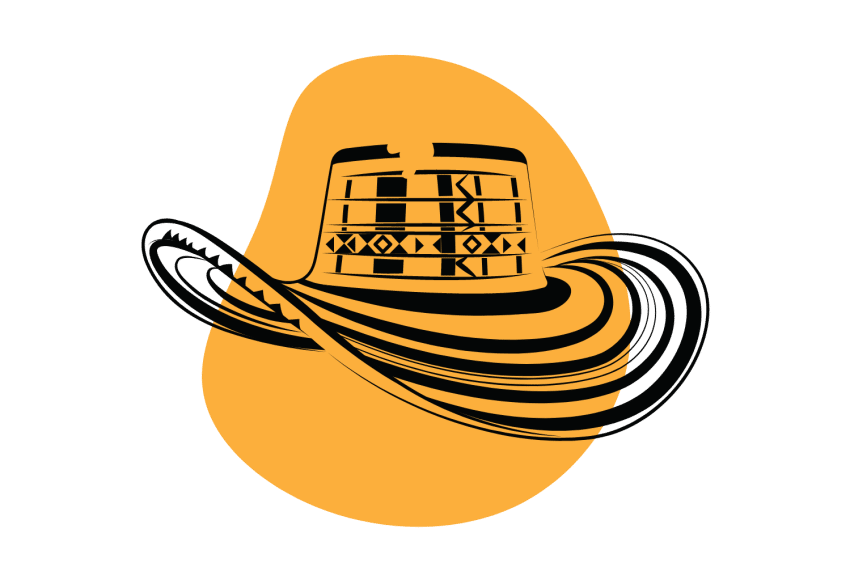
The Colombian strain is famous for 3 things.
First, it’s a notoriously aggressive colonizer; it grows a mix of rhizomorphic and cottony mycelium; and it features a unique variant with rust-colored spores (called Colombian Rust Spore).
There’s a lot of confusion between the rust variant and the original Colombian strain. We’ve obtained samples of both sold as just “Colombian” in the past. Most vendors don’t seem to differentiate between the two variants and in truth, there isn’t much difference between them outside of the spore color. Both strains appear to produce the same looking mushrooms, similar yields, and virtually identical potency.
Colombian shrooms have rounded yellowish-white caps and slender white stems.
The original sample of this strain was allegedly collected in pasture land just outside the small village of Villa de Leiva, Colombia.
Although intense visuals are common with this strain, it’s regarded as a “low-anxiety” shroom, making it ideal for socializing and group trips with friends.
Related: 100 Magic Mushroom Strains Examined
Colombian Strain Specs
| Potency | Above Average 💪 |
| Cultivation | Easy |
| Species | Psilocybe cubensis |
| Substrate Recommendation | Rye Grain, Bird Seed, BRF (Brown Rice Flour), Coco Coir & Vermiculite |
| Sold By | Spores 101 (🇺🇸/🇨🇦), Miracle Farms (🇺🇸/🇨🇦), Sporeslab (🇨🇦), The Magic Mushrooms Shop (🇪🇺) |
Colombian Strain Potency & Psilocybin Content
Little is known about the potency of the Colombian strain. There’s no scientific data on exact psilocybin levels or total tryptamine content.
With that said, we place the potency of the Colombian strain above average — which means the total tryptamine levels are likely somewhere in the range of 0.9%–1.8%.
Colombian is generally considered a social and empathetic shroom. It’s excellent for tripping with friends because it can amplify connections and have you talking for hours.
The feelings are rather “floaty,” with intense feelings of energy in the form of “body rushes.” We’ve found that the closed-eye visuals are much more intense and insightful than they are with eyes open.
Colombian Genetic Variants
The Colombian strain is a rather unique strain with no known genetic relatives. Due to the unpopularity of the strain, there are also very few variations. However, the Colombian strain has one genetic variant that has been isolated from a mutation — Colombian Rust.
Colombian Rust
Colombian Rust is a mutation of the original Colombian strain and has been isolated and cultivated to create a new variety.
This strain shares several similarities with the original and looks identical. The difference between this variation and others is that it produces spores with a unique color. Colombian Rust sporulates rust-brown spores instead of the dark purple-black spores that Colombian Rust usually produces.
You can expect the same characteristics, such as aggressive colonization, contamination resistance, and the same levels of potency as the original strain.
Where to Buy Colombian Spores
Although less common than other Psilocybe cubensis strains, it’s possible to find Colombian spores.
Whether you live in the United States, Canada, or Europe, you shouldn’t have an issue finding Colombian strain genetics:
- If you live in the United States — MYYCO, Spores 101, Miracle Farms
- If you live in Canada — Spores 101, Sporeslab, Planet Spores
- If you live in Europe — The Magic Mushrooms Shop (🇪🇺), Shiny Spores (🇬🇧)
→ View all spore vendors & grow kit suppliers
How to Grow Colombian Mushrooms
The Colombian strain is contamination-resistant, can grow in an unoptimized environment, and is an unbelievably aggressive colonizer. These traits make it perfect for the beginner with little knowledge of mushroom cultivation. This strain is easy to grow, and you can get great results with minimal equipment and simple techniques.
The easiest way to grow Psilocybe cubensis shrooms is by using a method called PF-Tek. This cultivation technique is simple and easy to understand and perform. You can read in detail how to cultivate magic mushrooms using PF-Tek.
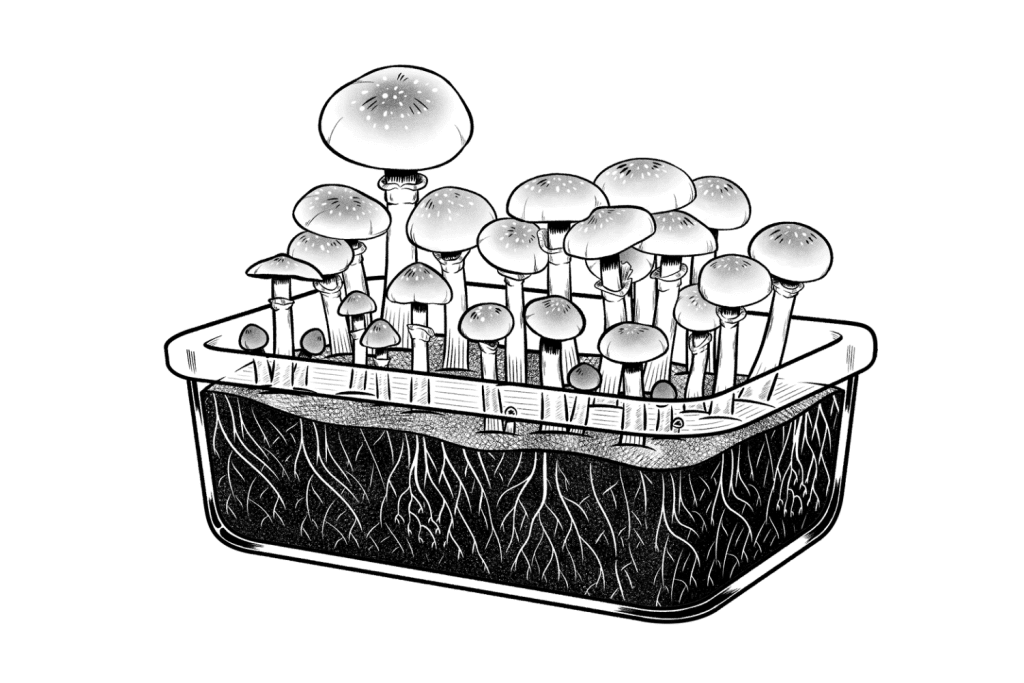
PF-Tek involves filling glass jars with substrate and inoculating them with Colombian spores. The jars are then left to colonize with mycelium for two to three weeks. Once the mycelium covers the substrate inside the jars, remove the cakes and place them in a simple fruiting chamber.
In the fruiting chamber, the cakes will produce mushrooms over several flushes. Harvest the mushrooms as they mature, but before they drop their spores.
Colombian isn’t fussy in terms of substrate. It will do well on rye grain, bird seed, BRF (brown rice flour), and coco coir mixed with vermiculite. The strain isn’t particularly picky with temperatures either, but you’ll get the best results by keeping the environment between 73 and 82 degrees Fahrenheit (23 and 28 degrees Celsius) during fruiting.
Other Beginner Magic Mushroom Strains
Colombian is resistant to contamination, colonizes aggressively, and grows in an unoptimized environment. These traits make it a fantastic strain for the beginner mushroom cultivator. However, Colombian isn’t the only option that’s easy to grow.
If you’re looking for easy-to-grow strains to start with, take a look at these:
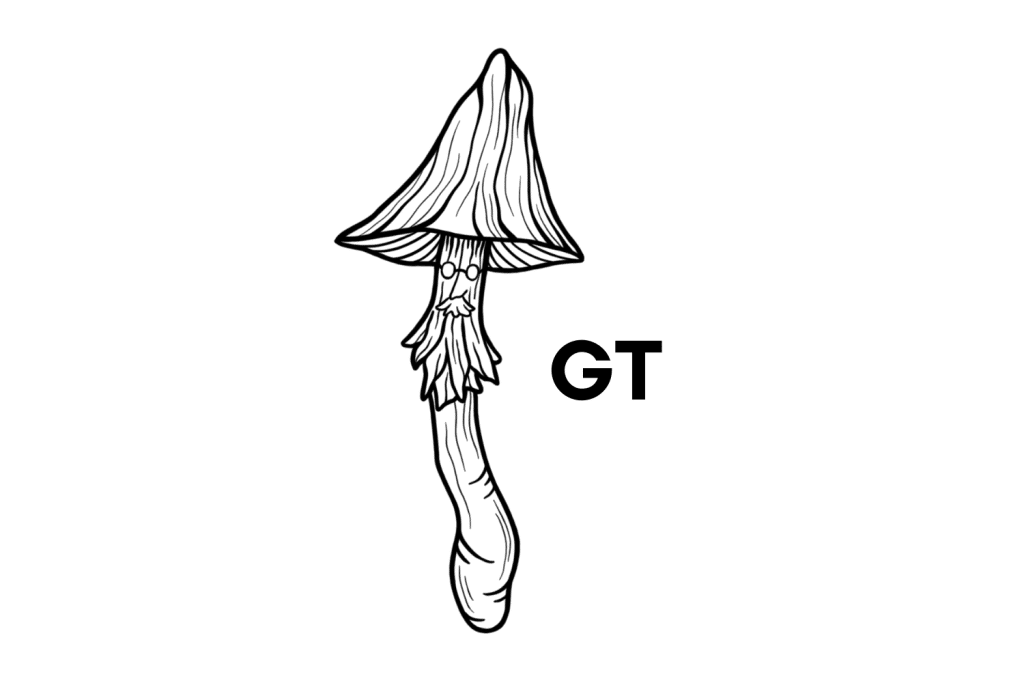
Golden Teacher (GT)
Golden Teacher is one of the most popular and common strains of Psilocybe cubensis and has circulated the market since the early 1980s. Most people who have consumed magic mushrooms know about this strain, and it’s a common choice among commercial and first-time growers.
Golden Teacher has excellent resilience to bacteria and mold, colonizes quickly, and can be cultivated in an unoptimized environment. This well-rounded strain is perfect for the first-time cultivator looking for a fool-proof strain.
Golden Teacher’s origins are unclear. However, it’s believed that the first sample was collected somewhere in the Gulf region of the United States. The mushrooms are pretty average to look at, and the potency is rather average too.
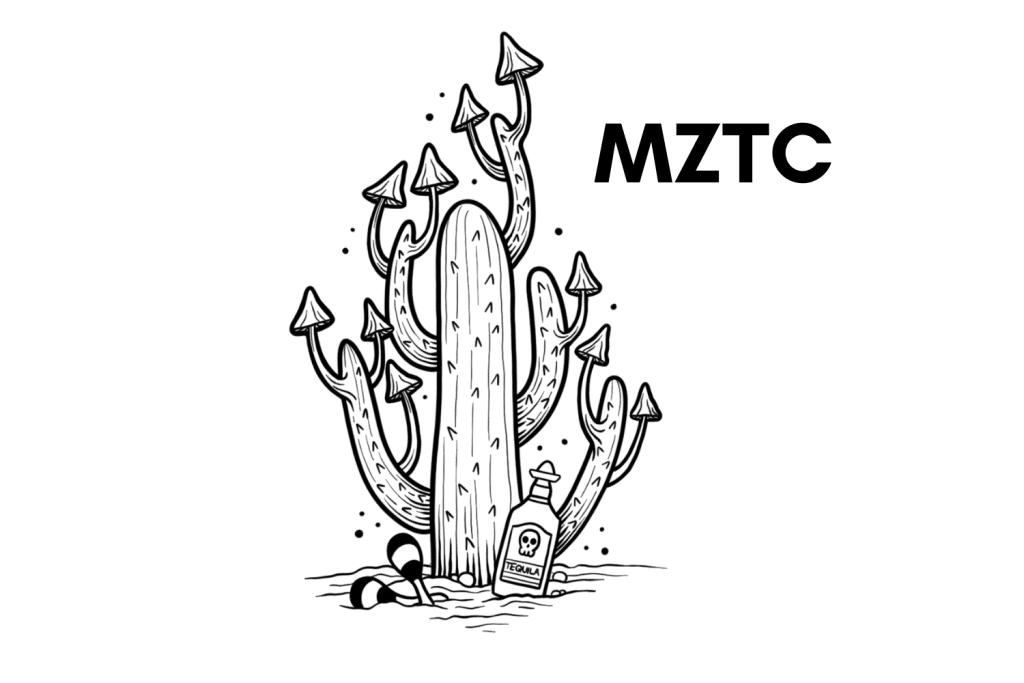
Mazatapec (MZTC)
Mazatapec was one of the first Psilocybe cubensis strains brought back to the West. It’s believed that Robert Gordan Wasson brought the first sample back to the United States. Supposedly, he collected it sometime after visiting Huautla de Jiménez (a small town in southern Mexico) to visit Maria Sabina.
This is a well-rounded strain that is contamination-resistant, an aggressive colonizer, and fairly potent. The mushrooms have round bulbous caps and long white stems. Good yields over several successful flushes are possible with Mazatapec, especially if the growing conditions are maintained well.
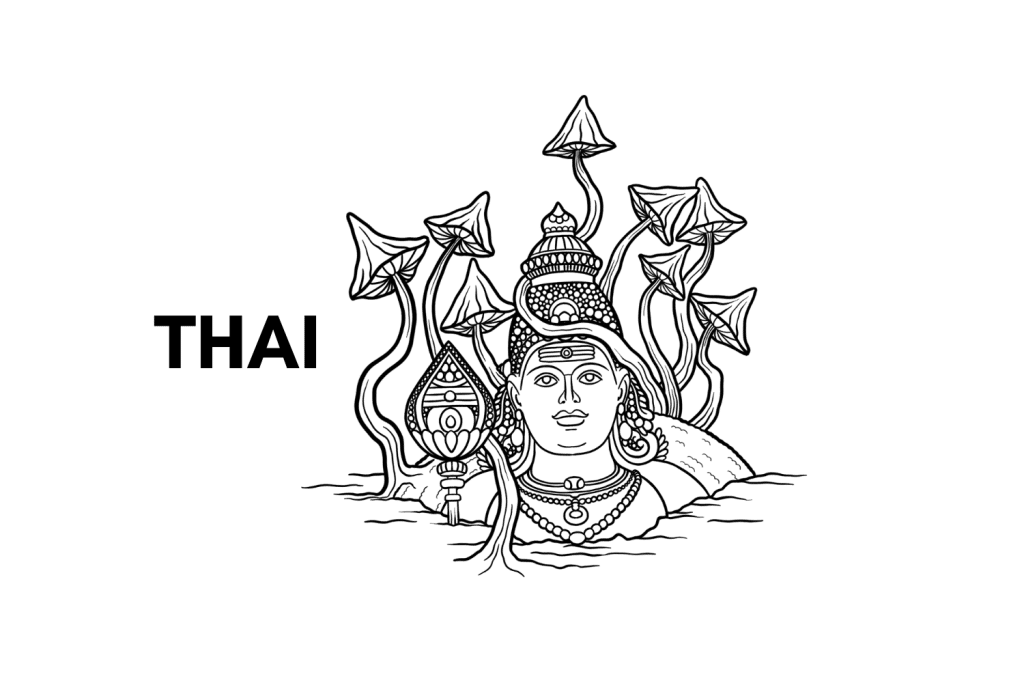
Thai (THAI)
The Thai strain is one of the many that “Mushroom” John Allen collected on his travels through Southeast Asia in search of psychedelic fungi in the 1990s. This strain was discovered on the fruitful island of Koh Samui — a place where several other Thai strains were discovered.
Thai shares several similarities to the Koh Samui strain, but instead of producing “fatasses” (short fat shrooms), Thai produces mushrooms with long, thin stems and round caps that flatten out with maturity. Thai mushrooms have average to above-average potency.
This is a great beginner strain because it’s resilient to contamination and can thrive in unoptimized conditions.
Strains vs. Species: What’s the Difference?
It can be confusing when you first start reading about the world of magic mushrooms — psilocybin-containing shrooms in particular. There are hundreds of different species of psychedelic mushrooms — and those are just the ones we’ve discovered. Psilocybe cubensis (the species Colombian is a part of) is just one of these psychedelic fungi species.
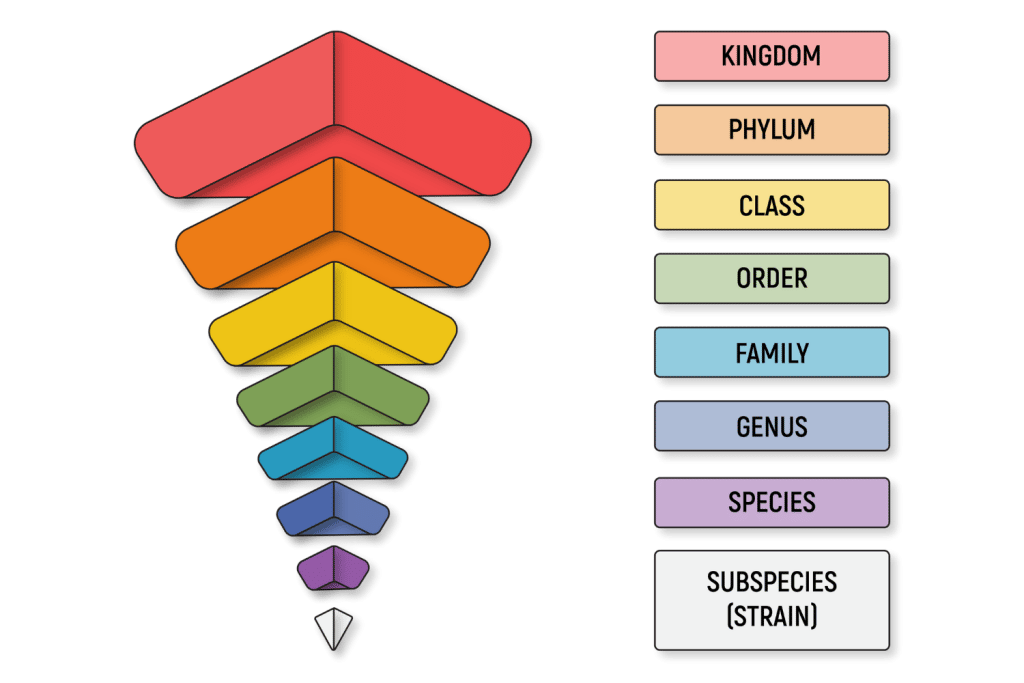
Psilocybe cubensis is the most common species of magic mushroom on Earth. It can grow around the world in a variety of different environments. It’s also incredibly popular among psychonauts and cultivators because it’s easy to grow compared to other psilocybin-containing mushroom species.
The Psilocybe cubensis species has hundreds of different genetic variants — also known as strains. The hundreds of strains within this species often look and grow differently while producing various levels of psilocybin and psilocin.
Although strains like Colombian and Enigma are vastly different, they have the same fundamental biological building blocks that make them close relatives and members of the P.cubensis species.
Strains exist in several species of fungi, plants, and animals. They occur naturally in the wild, where species adapt to combat climate and weather conditions or cross-breed naturally over several years. People also create strains. We enjoy cross-breeding strains to bring out traits that are beneficial or enjoyable to us.
Strains of Psilocybe cubensis, such as White Rabbit, Penis Envy, and Tidal Wave, are a result of humans cross-cultivating strains. Dog breeds and many cannabis strains are also the results of us cross-breeding strains to create new ones.

